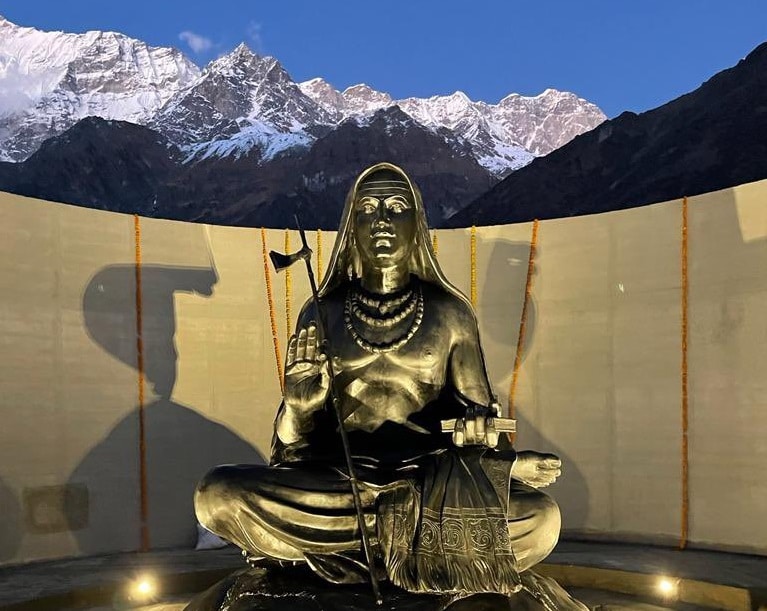Knowledge becomes handy when you are in a complex situation. Because of knowledge, any object or people become useful in that situation. How can you make that knowledge to be with you, that too all the time? It depends upon you. Whatever you prioritise, that object or person becomes closer to you. If knowledge becomes your priority, knowledge has to be with you all the time. Unfortunately, your target is not knowledge. Your target always seems to be the result of knowledge. When you are too much interested in the outcome of knowledge, you don’t see the process. You dream to achieve the outcome of knowledge called happiness, freedom and enlightenment.
This text Yati Pancakam has five verses on a Yati (superficially means ‘a happy person’). Also known as Kaupina Pancakam, this famous quintet is attributed to Adi Sankara. Kaupina is a piece of loin cloth. Whatever you have with you, do you use everything? A wealthy person may not enjoy his wealth. However, one who enjoys walking with just a Kaupina is a blessed person and is called a Yati. You can be happy being alert. You are unhappy when you are not aware of a situation. You take the situation or people for granted. To solve that situation, you waste all your energy.
There was a sanyasi who had just two Kaupina. One day, a rat made a hole in the Kaupina in the wrong place. He was worried on how to protect the Kaupina. Someone suggested, the sanyasi to get a cat to keep the rat away. The sanyasi had to feed milk to the cat. Someone suggested the sanyasi to buy a cow to get milk for the cat. Then the cow had to be maintained. Someone suggested to find a lady to take care of the cow.
In the quest of saving the Kaupina, the sanyasi ended up owning a cow and a lady caretaker. Just by wearing a Kaupina does not mean you are fortunate. Knowledge that you are free is required. For a common person “what I have” is more important than “Who am I”. From morning till you go to bed your thoughts are predominant with insecurities. You always dwell upon the object or people you have. Veda is the embodiment of knowledge. It does not belong to any religion. Vedic teaching is put in a format following which one can live his life. Only in Vedic tradition, it allows them to challenge their own tradition.
In Hindu tradition, everything is looked as a ritual. Taking bath, eating food, walking, etc. everything is considered a ritual. We do a sankalpa before taking bath (snanam). During sankalpa, we focus on the four desires – Dharma, Artha, Kama, Moksa. Dharma means what is to be done at the given moment (also known as Karma). Keeping dharma in mind, you can earn artha (Wealth). You cannot compromise your dharma to earn money. Keeping wealth, the pleasure should come. This is highlighted in Karma Kanda (creating an end to achieve) of Vedas. Going to heaven is considered a pleasure and not liberation. The Jnana kanda of Vedas helps in liberation or Moksa.
The one who is always dwelling on the teachings of the Vedas instead of one’s own insecurities is a happy person. If the teaching is predominant in your life, that teaching will be handy. The one who lives with whatever comes his way (Bhakti) will be happy.

